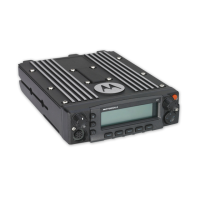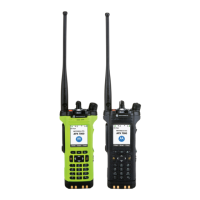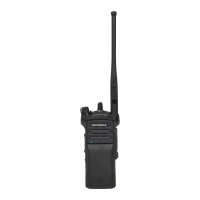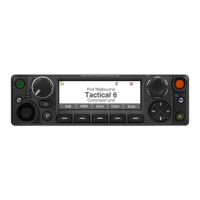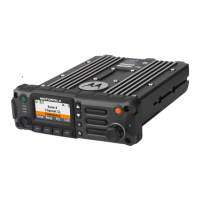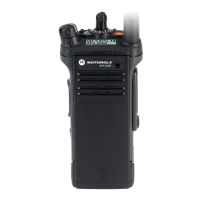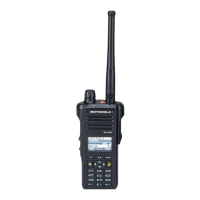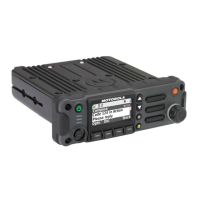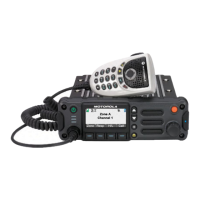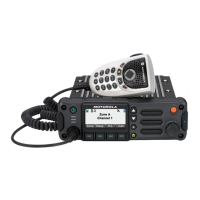22 Supported Features
NOTE: Operation on Conventional channels is supported at product launch. Operation on
Trunking channels is not supported.
6. Emergency Alarm ACK – A subscriber unit can send an emergency alarm over-the-air at
any time. The Consolette will receive it, decode it and provide it to the Console. The
corresponding ACK from the Console is then transmitted by the Consolette over-the-air
back to the specified subscriber on Conventional channels only. The ACK is auto
generated by the system, not user initiated.
NOTE: Emergency Alarm decode is supported on both trunking and conventional air interfaces,
but the corresponding ACK is only allowed on conventional air interfaces. It is
recommended that only one Consolette per conventional system be enabled to
acknowledge alarms. Emergency Alarms on a Trunking air interface are always
acknowledged by the Trunking System.
Emergency Alarm ACK Encode is standard on Consolette models beginning with
R09.00.00 radio software. Option GA00469 is no longer required for this functionality.
7. Monitor – When a monitor command is received, the Consolette will send a message to
the mobile radio to cause it to enter the monitor state (ex. disables Receive PL on
Conventional channels). Whenever a subsequent PTT command ends, a message is sent
to exit the monitor state.
8. Receiving a Voice Transmission including IDs – When the Consolette receives a voice
transmission it is reported via the ACIM Link. The console user will see it as an inbound
call on the ACIM Link channel.
The Console GUI may show the alias (or Unit ID) of the source of the transmission if a Unit
ID was received with the transmission. The Consolette supports inbound group calls,
Voice Selective Calls, Trunking Private Calls and Emergency Calls. Not all air interface
types support all inbound voice transmission types.
Note that Voice Selective Calls and Private Calls are only supported locally to the
Consolette and are reported to the Console as Group Calls. Only Unit-to-Unit Call Alerts
are reported to the MCC7500 Console, Group Call Alerts are not reported.
The following table describes the IDs that are supported:
Figure 4-6 Supported ID
9. Encryption Key (CKR) Reporting* – The Consolette supports receiving encrypted calls in
both ASTRO and analog modes. For all air interfaces the Consolette will also report the
received CKR which can be displayed on the console GUI. Received encrypted calls are
decrypted at the Consolette, not the Console.
* Option W969 for Multiple Key Encryption Operation is required for this operation
Unit-to-Unit
Call Alert
PTT-ID*
Emergency
Call PTT-ID*
Emergency
Alarm PTT-ID
Analog Conventional Not Reported Not Reported Not Reported Not Reported
Analog Conventional with MDC (Optional) Reported Reported Reported Reported
APCO Conventional Reported Reported Reported Reported
Type II Trunking - Analog TG Reported Reported Reported Reported
Type II Trunking - Digital TG Reported Reported Reported Reported
ASTRO 25 Trunking Reported Reported Reported Reported
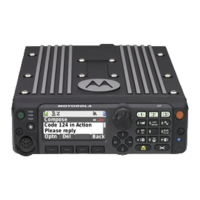
